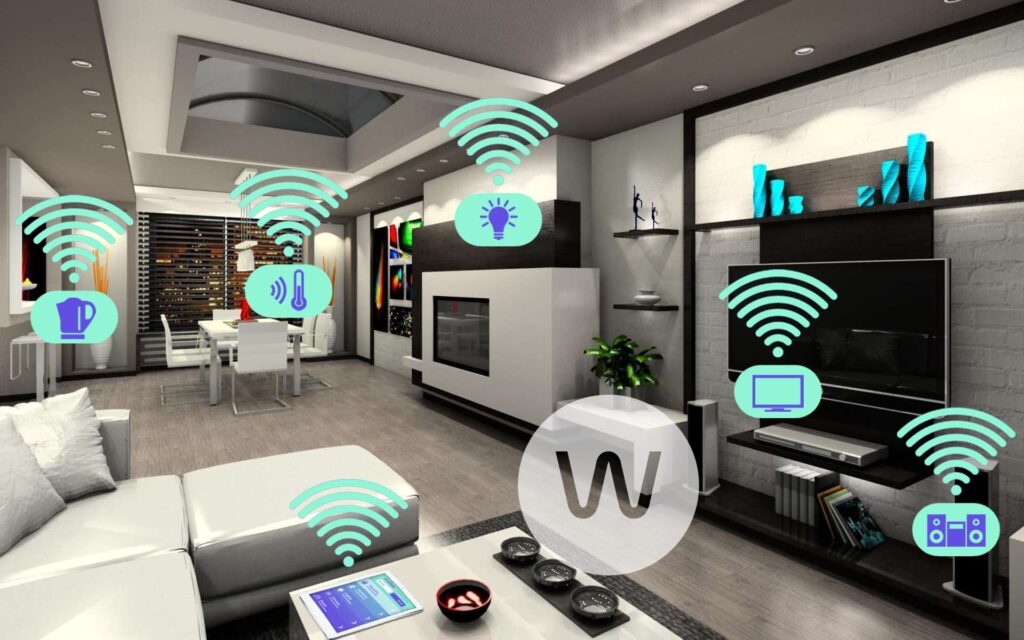
If you’ve ever wondered, “Can my home and car manage themselves while I chill on a beach or sip chai on my rooftop?”—the answer is yes, and it’s already happening. Welcome to the age of Smart Automation Systems—where solar power meets intelligent automation to give you a home and vehicle experience that’s efficient, economical, and future-ready.
Now, this isn’t just about solar panels on the roof or a Tesla in the garage. It’s about how automation and renewable energy come together to create a living experience that thinks, learns, and saves—especially in countries like Pakistan, where energy challenges and rising fuel costs push us to adopt better solutions.
Let’s break it all down.
Why Solar Needs Automation (And Vice Versa)
We’ve all seen solar panels installed to save on electricity bills—but imagine if your energy system could predict when to store power, turn off unnecessary appliances, or even charge your electric car when rates are low?
That’s what Smart Solar Automation Systems are designed to do.
It’s like having a personal assistant for your electricity—only better, because it never sleeps.
So instead of just generating power, your solar setup now becomes the brain of your home and vehicle energy system.
How It Works: A Glimpse Into Smart Solar Systems
A smart solar system typically integrates:
- Solar Panels
- Battery Storage (Lithium or Lead Acid)
- Smart Inverter & Charge Controller
- IoT Devices and Apps
- Automation Modules for Lights, Fans, EV Chargers, and More
With these components, you can program your home or vehicle system to:
- Switch to battery mode during peak tariff hours.
- Turn off heavy appliances when battery levels drop.
- Automatically divert solar power to your EV charger when your car is plugged in.
- Send mobile alerts when there’s a power spike or battery issue.
- Use voice commands (like Alexa/Google Assistant) to control home devices.
Pretty neat, right?
Home Energy Management: Solar-Powered, App-Controlled
Let’s talk about daily life.
Imagine it’s noon and the sun is blazing. Your solar panels are producing more than your home needs. A smart energy manager can:
- Store that power in batteries for later use at night.
- Divert excess power to run your water motor or air conditioner.
- Schedule heavy appliance usage (washing machine, geyser) during peak solar hours.
Now, multiply that micro-efficiency across your entire month, and the savings are huge.
This is especially valuable in Pakistan, where peak load-shedding hours coincide with high appliance usage. Smart systems give you a way to manage it proactively, without compromising on comfort.
Vehicle Automation: The Future of Charging is Solar
Yes, EVs are catching on in Pakistan, slowly but surely. Brands like MG, Hyundai, and even local players are offering electric options. But the real game-changer?
Solar-charged vehicles.
Smart systems can be integrated with your home EV charging station, ensuring:
- EVs are charged during sunlight hours for zero electricity cost.
- Charging is paused when the home load increases.
- You get a mobile notification when charging is complete or if it stops due to load issues.
It’s like autopilot for your electricity—and it makes your daily commute 100% green.
The Pakistani Market: Why This Shift Matters Now
Let’s face it—Pakistan’s power sector is struggling. Electricity rates continue to rise, unscheduled load-shedding is common, and fuel prices are draining wallets.
In this climate, solar adoption combined with smart energy management isn’t just a luxury—it’s survival.
Recent data shows:
- Over 30% growth in smart home installations in urban areas (Lahore, Karachi, Islamabad) over the past two years.
- More than 70% of new solar adopters are asking about automation modules and smart inverters.
- Net-metering and EV policies are slowly encouraging hybrid home-vehicle solar models.
So, it’s clear: the tech is here, the demand is growing, and the early movers are already reaping the benefits.
Real-Life Example: Solar Automation at Work
Zainab Abdul Raheem, a homeowner in Bahria Town Lahore, installed a 5kW solar system with home automation and EV charger integration.
Her home now:
- Powers all appliances via solar during the day.
- Uses smart timers for water pumps and outdoor lights.
- Automatically charges her EV (MG ZS EV) from 11 AM to 4 PM—zero grid cost.
- Syncs with a mobile app for full control of energy usage.
Her energy bill went from Rs. 28,000/month to Rs. 6,200/month. The smart modules paid for themselves in under 10 months.
Connection with Smart Security: It’s All One Network
Remember our last blog on Integrated Solar CCTV Systems in Pakistan? That’s the beauty of smart solar automation—you can plug your security system, vehicle, lighting, and even kitchen into a single ecosystem.
Now your home lights turn on when the camera detects motion… and the camera runs on solar, which is monitored from your app. That’s the power of connected energy.
What to Look For in Smart Solar Automation Systems
When planning your upgrade, make sure your provider offers:
- App-based Control (iOS/Android)
- Load Scheduling and Management Tools
- EV Charger Compatibility
- Scalable Battery Storage
- Net-Metering and Grid Sync Support
- Voice Assistant Integration
Local brands like JS Technology in Pakistan now offer affordable, modular systems tailored for Pakistani weather, load profiles, and tariffs.
Conclusion: Power Your Life Smarter, Cleaner, and Simpler
Let’s be honest—solar alone isn’t enough anymore. You need intelligence to manage your energy use, cut costs, and future-proof your home.
Smart Automation Systems let you reclaim control—not just over your power bill, but your lifestyle. From managing your home appliances to charging your EV to keeping your CCTV online—all of it, effortlessly managed through the power of the sun.
In a time when energy is expensive and the climate demands better choices, this is your shot to build a home that’s smarter, greener, and ready for tomorrow.
Ready to automate your home or vehicle with solar? Contact JS Technology today for a free consultation or demo!







